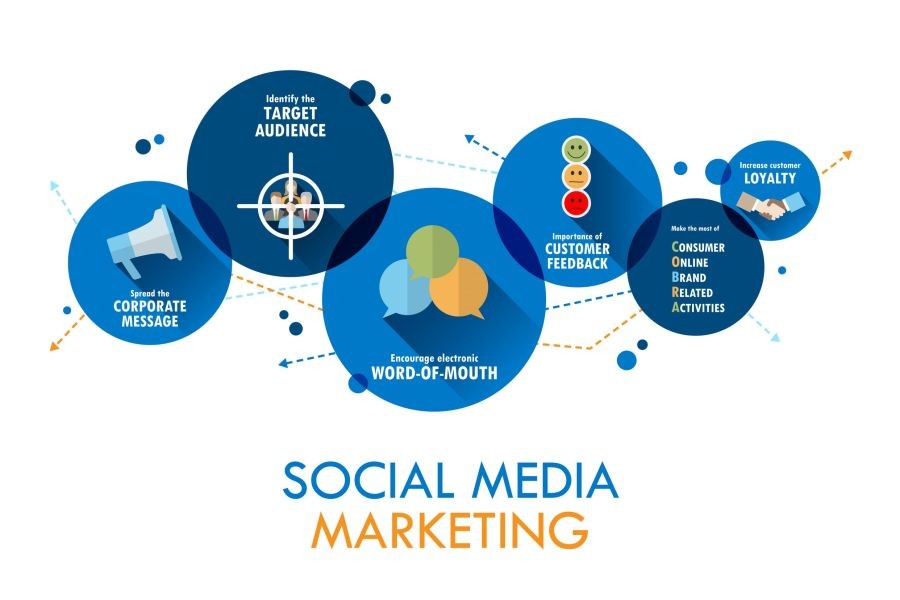Imagine a world where digital advertisers in New Zealand can no longer rely on third-party cookies to track user behavior. This reality is fast approaching, as the digital marketing landscape shifts towards greater privacy and data protection. For Kiwi advertisers, this transformation presents both challenges and opportunities that could redefine how they engage with audiences and measure campaign success. As this change looms, understanding its implications becomes crucial for advertisers, marketers, and policymakers.
Understanding the End of Third-Party Cookies
Third-party cookies have long been a cornerstone of digital advertising, allowing marketers to track users across different websites to tailor personalized ads. However, rising privacy concerns and regulatory changes have driven major browsers like Google Chrome and Firefox to phase them out. The end of third-party cookies is expected to significantly impact how advertisers gather data, target audiences, and evaluate campaign effectiveness.
Pros & Cons Evaluation
✅ Pros:
- Enhanced Privacy: Users gain more control over their data, aligning with global privacy regulations such as GDPR and New Zealand's Privacy Act 2020.
- Improved User Trust: Transparency in data usage fosters trust between consumers and brands.
- Innovation Opportunities: Advertisers are encouraged to develop new, privacy-centric marketing strategies.
- Data Integrity: First-party data becomes more reliable, as it comes directly from user interactions on a brand's platform.
❌ Cons:
- Data Gaps: Advertisers may struggle with limited insights into cross-platform user behavior.
- Higher Costs: Investing in new technologies and strategies may increase operational expenses.
- Complex Transition: Migrating to new systems and processes requires time and resources.
- Potential Revenue Loss: Short-term disruptions could affect ad targeting effectiveness and ROI.
Case Study: Trade Me – Navigating the Digital Transition
Problem: Trade Me, New Zealand's largest online marketplace, faced challenges as third-party cookies were phased out. The company relied heavily on cookie-based tracking for personalized advertising, vital for driving user engagement and sales.
Action: Trade Me adopted a first-party data strategy, utilizing user data collected directly on their platform. They invested in AI-driven analytics to better understand consumer behavior and preferences, expanding personalized marketing efforts through their own datasets.
Result: Over 12 months, Trade Me saw a 30% increase in user engagement and a 20% boost in conversion rates. Their reliance on first-party data resulted in more accurate targeting, enhancing user experience and trust.
Takeaway: Trade Me's proactive approach highlights the importance of leveraging first-party data and AI analytics for effective, privacy-compliant advertising. Kiwi businesses can draw from this strategy to maintain competitiveness in a cookie-less future.
Data-Driven Insights: The New Zealand Context
According to Stats NZ, New Zealand's digital advertising market was valued at NZD 1.07 billion in 2022, illustrating the sector's significance to the economy. As third-party cookies are phased out, local advertisers must adapt to ensure continued growth. The Ministry of Business, Innovation, and Employment (MBIE) emphasizes the need for innovation in digital marketing to sustain economic contributions.
Debunking Common Myths
Myth: "Third-party cookies are the only way to achieve personalized advertising." Reality: First-party data and AI-driven insights offer alternative ways to personalize ads, often resulting in more accurate targeting and better user experiences.
Myth: "The loss of third-party cookies will lead to the end of digital advertising." Reality: While the transition poses challenges, it also fosters innovation. Advertisers can explore new technologies and strategies to adapt and thrive.
Myth: "Ad spend in New Zealand will plummet without third-party cookies." Reality: Although short-term disruptions may occur, long-term growth is expected as advertisers embrace new methods and tools.
Biggest Mistakes to Avoid
- Neglecting First-Party Data: Failing to invest in first-party data collection and analysis can hinder marketing efforts. Solution: Develop robust data collection strategies and leverage AI tools for deeper insights.
- Delaying Adaptation: Procrastinating on adopting new strategies increases risks of falling behind competitors. Solution: Start exploring alternative data collection and targeting techniques now.
- Ignoring Privacy Regulations: Non-compliance with privacy laws can result in legal repercussions and damage brand reputation. Solution: Ensure all advertising practices adhere to New Zealand's Privacy Act 2020 and international standards like GDPR.
Future Trends & Predictions
As New Zealand navigates the post-cookie landscape, several trends are poised to shape the future of digital advertising:
- Increased Focus on First-Party Data: By 2026, it is predicted that 70% of Kiwi businesses will prioritize first-party data strategies to enhance targeting and personalization.
- Rise of Contextual Advertising: Advertisers will shift towards contextual ads, leveraging content relevance rather than user behavior tracking to deliver targeted messages.
- AI and Machine Learning Integration: AI and ML technologies will play a crucial role in analyzing first-party data, optimizing campaigns, and automating personalization efforts.
Conclusion: Embracing Change for Success
New Zealand advertisers are at a pivotal moment as the digital landscape undergoes transformation. By embracing first-party data strategies and innovative technologies, Kiwi businesses can navigate the end of third-party cookies with resilience and creativity. As the industry evolves, staying informed and adaptable will be key to thriving in the new era of digital marketing.
What’s Next? Start exploring first-party data strategies today to future-proof your advertising efforts. For exclusive insights and updates on digital trends in New Zealand, subscribe to our NZ Digital Trends Newsletter.
People Also Ask (FAQ)
- How does the end of third-party cookies impact businesses in New Zealand? NZ businesses leveraging first-party data report enhanced targeting accuracy and user engagement, according to MBIE. Embracing this strategy can drive long-term growth and compliance.
- What are the best strategies for implementing first-party data? Experts recommend starting with a comprehensive data collection framework, utilizing AI analytics, and ensuring compliance with privacy regulations for sustainable success.
Related Search Queries
- New Zealand digital advertising trends
- First-party data strategies NZ
- Impact of privacy regulations on advertising
- AI in marketing in New Zealand
- Future of digital advertising NZ

































clintoncameron
1 month ago